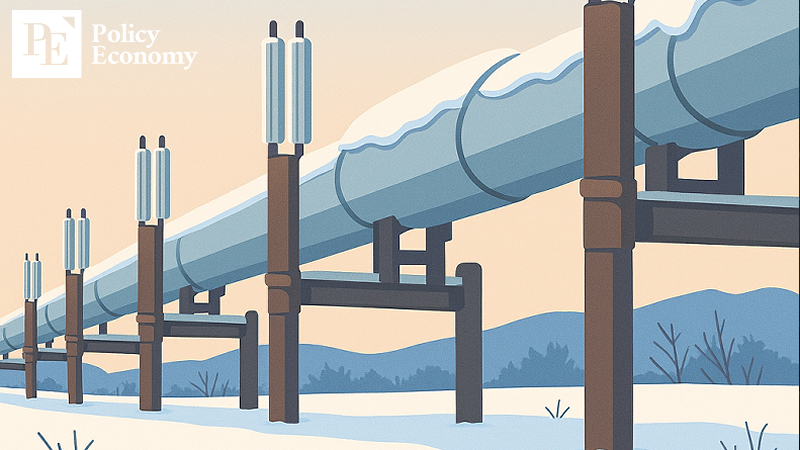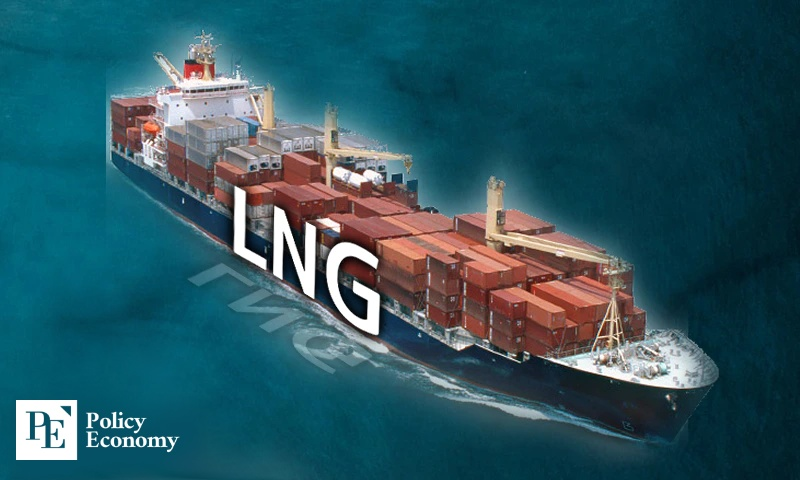“Too Much Uncertainty” — U.S. Alaska LNG Project Faces Cold Shoulder
Input
Modified
Japan and Taiwan Take a Wait-and-See Approach to Alaska LNG Exports South Korea Maintains Cautious Stance, Citing Need for Project Feasibility Thailand, With Significant Trade Surplus with U.S., Joins the Project

The large-scale liquefied natural gas (LNG) export project "AKLNG," currently being promoted by the U.S. state of Alaska, has hit a snag. Key Asian countries considered core customers—such as Taiwan, Japan, and South Korea—are increasingly reluctant to participate in the project. However, it has been confirmed that Thailand is engaging in substantive discussions with the U.S. side and is moving toward finalizing investment plans.
AKLNG Project Struggles to Attract Asian Buyers Amid Uncertainty
On May 9, the Anchorage Daily News reported that major Asian nations have shown lukewarm responses to the Alaska LNG (AKLNG) export project, casting doubt on its long-term viability. Spearheaded by the Alaska Gasline Development Corporation (AGDC) and private partner GlennParn, the AKLNG project aims to transport natural gas from Alaska’s North Slope to the southern port of Nikiski via an 800-mile pipeline for export to Asia. Despite branding AKLNG as a clean energy solution for coal-reducing Asian economies, AGDC has yet to secure any binding foreign investment.
In Taiwan, the response has been non-committal. Alaska Governor Mike Dunleavy’s recent visit yielded only a non-binding letter of intent with President Lai Ching-te, falling short of tangible outcomes.
Japan has been more definitive. Despite former President Donald Trump touting potential Japanese participation in February, AGDC clarified in a Senate committee hearing that no official joint project with Japan exists. The Japan Times echoed this sentiment, citing Japanese government sources and Osaka Gas, which stated it has no immediate plans to purchase additional U.S. LNG.
Korea Remain Cautious
South Korea is similarly hesitant. Following a bilateral meeting with USTR's Jamieson Greer, Korean Trade Minister Ahn Duk-geun told reporters that project feasibility remains uncertain. “If we make an investment based on expectations that turn out to be economically unviable, the national consequences could be severe,” he warned.
Asian countries are cautious due to multiple layers of risk. Although Alaska touts AKLNG’s ability to deliver LNG at $6.70 per MMBtu, analysts say actual prices could rise due to infrastructure and capital costs. Multinational energy giants like ExxonMobil have previously exited the project over economic concerns.
Political stability is another concern. U.S. policy on Arctic resource development has historically shifted with each administration. Given that commercial production from AKLNG is expected only by 2030—after President Trump’s current term—Asian buyers face long-term risk, especially nations like South Korea that depend heavily on timely LNG deliveries.

Thailand Expresses Concrete Interest
In contrast, Thailand has shown genuine enthusiasm. On May 8, Thai outlet The Nation reported that Bangkok is considering importing up to 5 million tons of LNG annually from Alaska. Thailand’s Ministry of Energy has tasked state-owned enterprises PTT and EGCO with initiating negotiations for joint development and long-term LNG purchase.
Deputy Energy Minister Prasert Sinsukprasert visited the U.S. to meet with Governor Dunleavy and other stakeholders. “AKLNG could secure long-term, competitively priced LNG for Thailand and support our ambitions to become an Asian LNG hub,” he stated.
Observers suggest Thailand’s interest may also stem from efforts to resolve trade tensions with Washington. Last year, Thailand posted a $45.6 billion trade surplus with the U.S., prompting the Trump administration to impose tariffs as high as 36%. While tariff negotiations were slated to begin last month, they have since been delayed by the U.S. side.
Participation in AKLNG could provide Bangkok with leverage in future talks while simultaneously aligning with its energy security strategy.





















